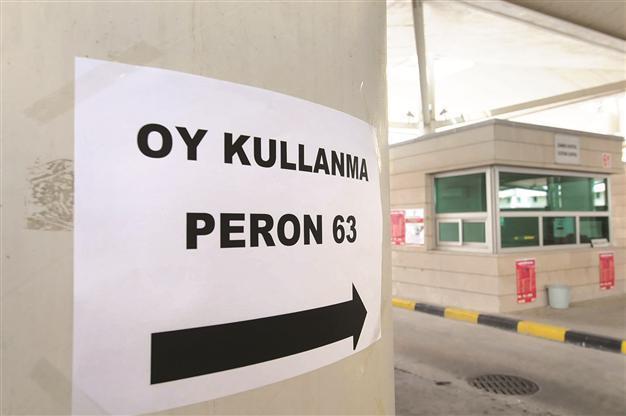Markets await uncertain Turkish election outcome
ISTANBUL

DHA Photo
Many investors backed off from taking new trading positions on June 5 ahead of Turkey’s parliamentary election on June 7, seen as one of the most uncertain in the last decade regarding the outcome.
Many analysts have suggested that the least bad outcome for the markets would be an outright Justice and Development Party (AKP) majority government, but by a margin not big enough to implement a change in the constitution.
The biggest question is whether the Peoples’ Democratic Party (HDP) clears the 10 percent threshold. If it does so then the AKP may not achieve an outright majority and some sort of coalition could be necessary.
Some polls have suggested that the AKP will struggle to win outright and may be forced into coalition.
“Put simply, investors face a choice between the devil they know and the devil they don’t,” said Nicholas Spiro, managing director at Spiro Sovereign Strategy in London, as quoted by Reuters.
“Either another single party majority for the increasingly populist and authoritarian ruling AKP ... or a fractious coalition government that injects yet more political risk into Turkish assets,” he added.
Political uncertainty has weighed on Turkish assets for months. The Turkish Lira has lost 14 percent of its value against the dollar since the beginning of the year. The 10-year bond yield was also broadly steady, down 2 basis points to 9.21 percent.
One of the big uncertainties for market players is also around the economic team of the future government, with many saying economy tsar Deputy Prime Minister Ali Babacan might leave his position.
“If we see a change in the economic team, then there is a big risk that the structural reforms that have already been announced will not be implemented. Especially against the backdrop of the U.S. Federal Reserve tightening its monetary policy, funding of the Turkish economy would be very difficult. Without funding the economy cannot grow and cannot accommodate for younger people coming into the labor force,” said Viktor Szabo, portfolio manager for emerging market debt at Aberdeen Asset Management, as quoted by Wall Street Journal.
The uncertainty will not be over even after the elections, as Turkey is one of the most vulnerable of the emerging market economies just ahead of the Fed’s expected monetary move.
The Turkish economy is in need of rebalancing and must create a new story in macroeconomic terms, according to many market players.
